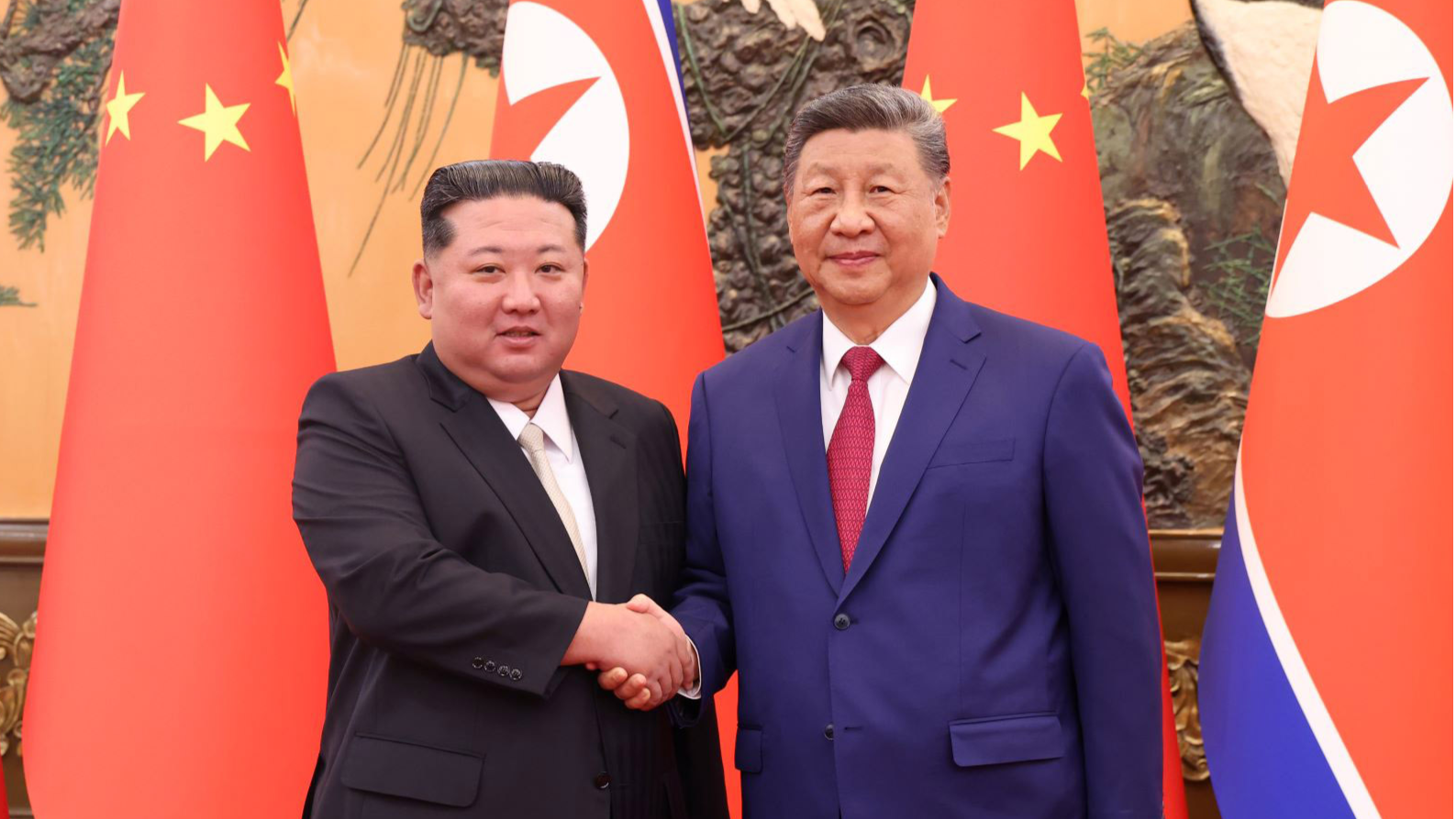In a remarkable exhibition of international unity, North Korean leader Kim Jong Un has reiterated his nation’s enduring alliance with China, portraying the bond as steadfast and founded on common historical ties and strategic objectives. The announcement was made at a recent major parade event, where both countries highlighted their joint dedication in the face of changing global dynamics and increased geopolitical pressures.
The reinforcement of these connections indicates the ongoing significance of the Pyongyang-Beijing partnership—a bond that has persisted through years of political, economic, and military collaboration. As the global community carefully observes changes on the Korean Peninsula, Kim’s comments highlight that North Korea is steadfastly aligned with its most powerful neighbor, especially as both nations encounter increasing external challenges.
A historic relationship grounded in mutual support
North Korea and China share a complex history that dates back to the Korean War, when Chinese forces provided crucial support to the North against United Nations troops led by the United States. That military alliance laid the foundation for decades of diplomatic and economic cooperation, shaping a partnership that has persisted despite evolving global dynamics.
Over time, Beijing has been pivotal to North Korea’s economic endurance, especially as Pyongyang faces global sanctions addressing its nuclear armament efforts. China continues as North Korea’s primary trade partner, delivering vital products and resources while offering diplomatic support in international arenas.
Kim’s latest comments highlight the strategic importance of maintaining this bond. Describing the relationship as “unchanging,” the North Korean leader stressed that both nations stand united in safeguarding their sovereignty and pursuing mutual development. The remarks were widely interpreted as a message of reassurance to China and a signal of defiance to countries advocating for tougher restrictions on Pyongyang.
The symbolism of the parade visit
The setting for Kim’s remarks was not incidental. Military parades in North Korea are meticulously orchestrated events designed to project strength, unity, and ideological resolve. By choosing this occasion to underscore ties with China, Kim underscored the depth of the bilateral relationship and its significance in shaping regional security dynamics.
The presence of Xi Jinping reinforced the message. Observers noted the prominent display of Chinese delegates during the ceremonies, reflecting Beijing’s willingness to publicly reaffirm its connection with Pyongyang despite ongoing international scrutiny.
Such diplomatic gestures carry particular weight amid a global environment marked by strategic rivalries and shifting alliances. Both North Korea and China face increasing friction with Western powers over issues ranging from security policies to economic competition. In this context, showcasing unity serves not only as a reassurance to domestic audiences but also as a warning to rivals that the partnership remains strong.
Geopolitical implications and regional stability
Kim’s reaffirmation of ties with China comes at a time of heightened uncertainty on the Korean Peninsula. North Korea has continued to advance its weapons programs despite multiple rounds of sanctions, while diplomatic engagement with the United States and its allies has stalled. Against this backdrop, China’s role as a stabilizing force—or as a strategic counterweight—has become increasingly significant.
Analysts point out that Beijing encounters a sensitive situation to manage. On one hand, it aims to sustain regional stability and prevent intensification, and on the other, China considers North Korea a crucial buffer against the United States military in East Asia. Enhancing bilateral relations gives Beijing influence in larger discussions on security and commerce, while providing Pyongyang essential political and economic support.
The renewed focus on camaraderie also signifies mutual worries about worldwide shifts. Both nations have been criticized over human rights matters and strategic goals, leading to tighter collaboration in international arenas like the United Nations. By openly restating their partnership, Kim and Chinese leaders intend to showcase strength amid increasing diplomatic challenges.
Economic cooperation and future prospects
Beyond the political symbolism, the relationship between North Korea and China carries significant economic dimensions. Although international sanctions have sharply curtailed Pyongyang’s access to global markets, trade with China—albeit limited—remains a crucial lifeline. Reports suggest that cross-border commerce has gradually resumed following disruptions caused by the pandemic, signaling potential efforts to expand economic engagement despite external constraints.
For North Korea, deeper economic ties with China represent an opportunity to mitigate the impact of sanctions and sustain essential imports such as food, fuel, and industrial goods. For China, maintaining economic channels with its neighbor ensures a measure of influence over developments on the peninsula, reducing the risk of instability that could spill across borders.
Looking ahead, both countries are expected to explore new areas of cooperation, including infrastructure development and energy projects, though the extent of these initiatives will likely depend on the broader international environment. Continued sanctions enforcement and diplomatic negotiations will shape the scope and nature of bilateral engagement in the coming years.
A message to the world
Kim’s declaration that the friendship between North Korea and China “will never change” was more than a rhetorical flourish—it was a calculated message aimed at multiple audiences. For domestic constituents, it signaled strength and reassurance that the country retains powerful allies amid economic hardship and international isolation. For Beijing, it reinforced Pyongyang’s loyalty at a time when regional dynamics are increasingly complex.
Maybe most crucially, the announcement acted as a message to Washington and its partners that efforts to isolate North Korea will encounter major hurdles as long as China continues its unwavering backing. During a time of increasing strategic rivalry, partnerships like the one between Pyongyang and Beijing are pivotal in defining the landscape of global security.
As the geopolitical dynamics keep changing, the strength of this alliance will stay a central topic for both policymakers and analysts. It will either act as a stabilizing influence or become a point of conflict, hinging on the actions and choices made by the two countries and how the wider international community reacts.




